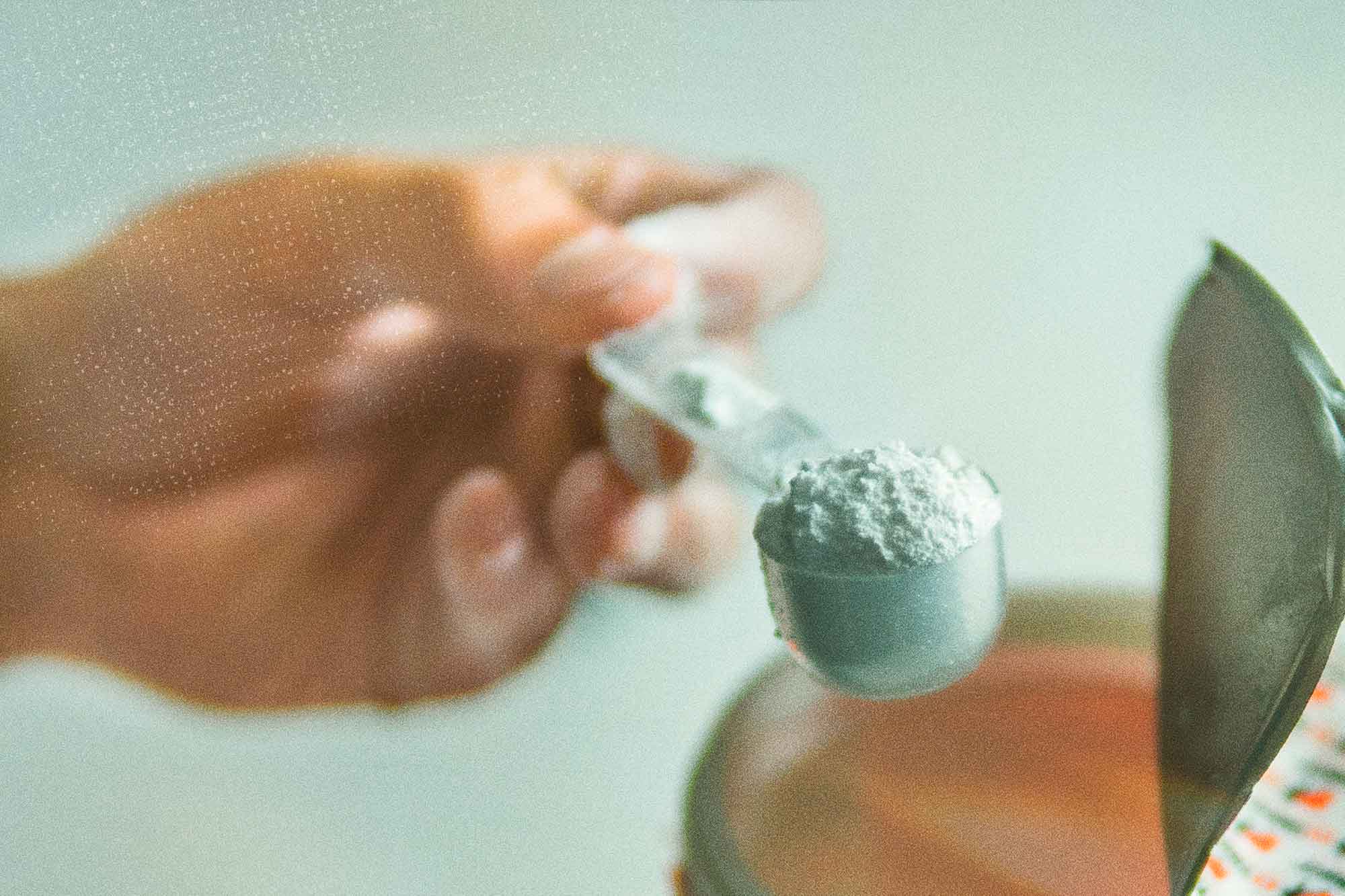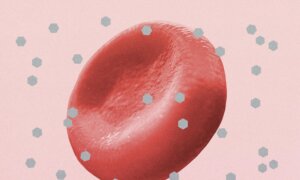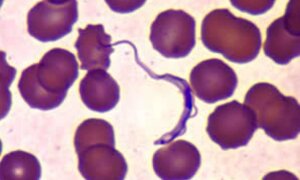Sleep deprivation is common in the United States, affecting a wide range of Americans—from 30 percent of adults in Vermont to 46 percent of adults in Hawaii. Because it can lead to decreased work performance and a higher risk of accidents, it is a concerning problem. During such times, people often reach for caffeinated beverages to give them the alertness needed to function.
Are there other supplements that can promote alertness?
A 2024 clinical trial from the Forschungszentrum Jülich in Germany investigated the cognitive effects of creatine, which athletes use to improve their sports performance. The authors wanted to determine whether the supplement might serve as a coffee alternative when working long nights. Results suggested that a single high dose of creatine may reduce the negative effects on the brain caused by insufficient sleep.
Despite the positive results, the researchers warned the public against taking a high dose of creatine because of health risks, noting that further studies are needed to determine if lower doses can improve cognitive performance.
Effects of a Single Dose
The clinical trial published in Scientific Reports assessed results from 15 healthy participants—without insomnia, other sleep disorders, or mental illness—ages 20 to 28. Researchers kept the participants awake overnight for two nights, with at least five intervening days between the night sessions. Participants were directed to perform cognitive tasks during the sessions.
Researchers administered either a high dose of creatine (0.35 grams per kilogram of body weight) or a placebo. To illustrate the dose, a man who weighs 82 kilograms (about 181 pounds) would have received 28.7 grams of creatine.
A positive effect on cognition and brain performance was observed 3 1/2 hours after participants took the creatine. According to other studies, these effects peaked after four hours and lasted for up to nine hours. Specific improvements included enhanced processing capacity and short-term memory.
Mechanism Explained
The results suggest that a single high dose of creatine improves thinking and changes the brain’s energy reserves during sleep deprivation, study coordinator Ali Gordji-Nejad, from the Institute of Neuroscience and Medicine at Forschungszentrum Jülich, said in a
statement.
Dr. Ryan S. Sultan, a psychiatrist and assistant professor of clinical psychiatry at Columbia University, explained the underlying mechanisms of creatine’s benefit on the brain’s energy reserves to The Epoch Times via email.
“Creatine has a role in rapidly regenerating adenosine triphosphate (ATP), the primary energy source for cellular processes,” he said. “This boost in ATP supports better neuronal function and transmission of chemical signals between nerve cells, which are crucial for cognitive tasks. This makes the nerve cells work better.”
Other Research
A 2024
systematic review published in Frontiers in Nutrition examined 16 clinical trials involving 492 participants ages 20 to 76. The participants included some who were healthy and others with specific diseases. The authors found some evidence that creatine enhanced overall cognition, attention, processing speed, and executive function. No significant difference was noted between short-term use (less than four weeks) and long-term use (four weeks or more).
Another systematic review published in Nutrition Reviews examined 10 clinical trials that compared how creatine supplements and a placebo affected memory in healthy participants. The results indicated that creatine had a beneficial effect on memory, particularly in older adults. The authors recommended large, rigorous, long-term clinical trials to further assess how creatine affects memory.
Dose and Risks
Although the results of the trial published in Scientific Reports were promising, Gordji-Nejad said he believes that it is too soon to recommend creatine for boosting cognition at such high doses.
“The recommended dose for a creatine supplement for healthy people is 3 [grams] to 5 grams per day,” he told The Epoch Times in an email. “The dose in our study was 20 [grams] to 30 grams.” This is four to six times the upper recommended daily limit of 5 grams.
According to Gordji-Nejad, although food sources of creatine include meat and fish, it is impossible to get the high dose in the study from food.
“Meat contains 0.5 grams of creatine per 100 grams, so it provides about 1 gram in a 3.5-ounce serving, which is too small to have any effect,” he said.
Dr. Justin Houman, board-certified urologist and assistant professor of urology at Cedars-Sinai Medical Center, provided information on the safe upper dose limit to The Epoch Times in an email. He noted that most studies suggest that doses of up to 10 grams per day are well tolerated in healthy individuals, but that higher doses provide minimal additional benefits.
Risks
“For most people, creatine is considered safe when used appropriately, but there are a few considerations, particularly for individuals with preexisting conditions,” Houman said. These include:
- Potential kidney function concerns: Creatine has not been shown to cause kidney damage in healthy people, but it may worsen preexisting kidney disease or be harmful in those with a history of kidney dysfunction. Creatine supplementation can increase creatinine levels in the blood, which may be mistaken for impaired kidney function in lab tests.
- Increased water retention and weight gain: Creatine increases water retention within muscle cells, leading to temporary weight gain, typically 1 pound to 3 pounds initially. This is not fat gain but intracellular water, which may be undesirable for individuals who need to maintain a strict weight, such as athletes in combat sports.
- Gastrointestinal issues: Some people experience bloating, diarrhea, or stomach discomfort, particularly when taking high doses (above the recommended range). To minimize this, it is best to take creatine with meals and stay within the recommended dose.
- Possible elevation in blood pressure: Since creatine affects water balance, it may contribute to mild fluid retention, which could theoretically affect blood pressure in people with salt sensitivity or poorly controlled high blood pressure.
According to the American Academy of Orthopedic Surgeons, doctors don’t know the long-term effects of creatine on important organs, nor do they know the effects of taking the supplement with over-the-counter or prescription drugs, other dietary supplements, and energy drinks. The organization urges people to always see their doctor before taking creatine.













